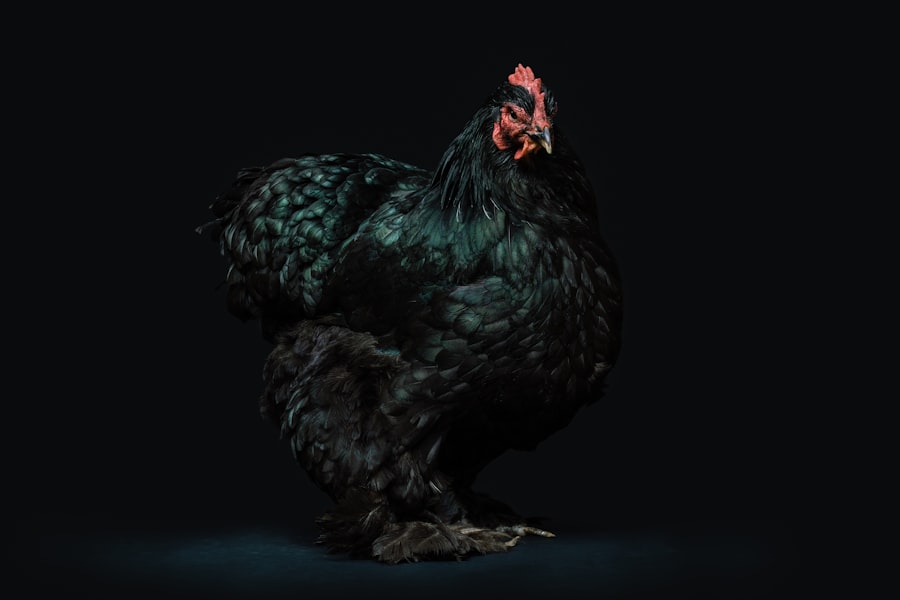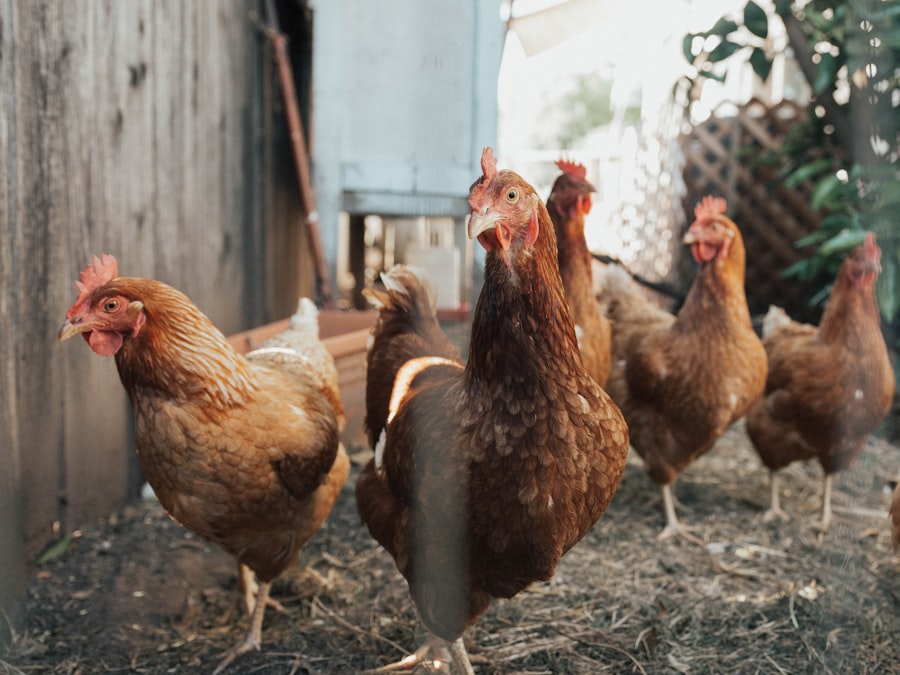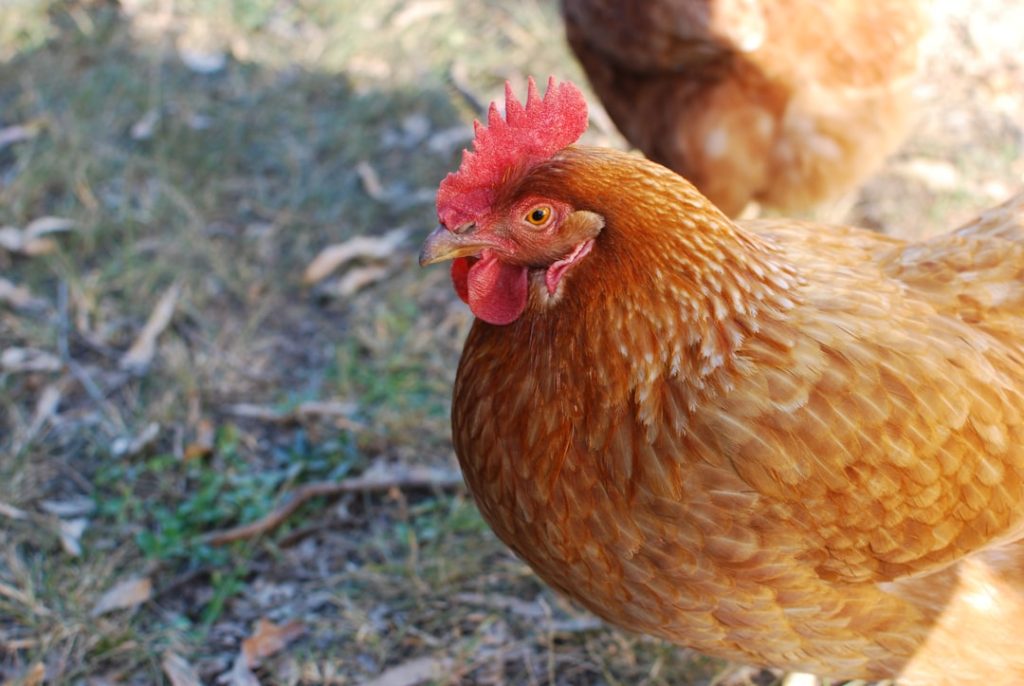Chickens can be beneficial additions to a homestead, offering fresh eggs, natural pest control, and entertainment. However, they can also become problematic when they enter gardens. Chickens are known to scratch soil, consume young plants, and damage ripe produce.
This behavior can be frustrating for gardeners who have invested time and effort in their crops. Furthermore, chickens may carry diseases and parasites that pose risks to humans and other animals. Consequently, it is crucial to implement effective methods to prevent chickens from accessing gardens while still allowing them to roam freely in designated areas.
A primary challenge in keeping chickens out of gardens is striking a balance between providing adequate space for the birds to roam and restricting their access to cultivated areas. Chickens are instinctive foragers and will explore any accessible area. As a result, relying solely on verbal commands or basic physical barriers may prove insufficient.
When selecting appropriate fencing heights and deterrent strategies, it is essential to consider various factors that influence chicken behavior and movement.
Table of Contents
- 1 Factors to Consider When Choosing Fence Height
- 2 Recommended Fence Heights to Keep Chickens Out
- 3 Additional Strategies for Keeping Chickens Out of the Garden
- 4 Common Mistakes to Avoid When Installing Garden Fencing
- 5 Benefits of Keeping Chickens Out of the Garden
- 6 Maintaining a Chicken-Free Garden
- 7 FAQs
- 7.1 What is the recommended fence height to keep chickens out of the garden?
- 7.2 Why is it important to keep chickens out of the garden?
- 7.3 What are some options for fencing to keep chickens out of the garden?
- 7.4 Are there any other methods to keep chickens out of the garden besides fencing?
- 7.5 What should I consider when choosing a fence to keep chickens out of the garden?
Key Takeaways
- Chickens can cause damage to gardens by scratching, pecking, and eating plants and vegetables.
- Factors to consider when choosing fence height include the size and breed of the chickens, their ability to fly, and the presence of other predators.
- Recommended fence heights to keep chickens out range from 4 to 6 feet, depending on the factors mentioned above.
- Additional strategies for keeping chickens out of the garden include using chicken wire, creating physical barriers, and using deterrents.
- Common mistakes to avoid when installing garden fencing include using inadequate materials, not securing the bottom of the fence, and underestimating the chickens’ abilities.
- Benefits of keeping chickens out of the garden include preserving the plants and vegetables, reducing the risk of disease transmission, and maintaining a tidy and organized garden space.
- Conclusion: Maintaining a chicken-free garden requires careful consideration of fence height, additional strategies, and avoiding common mistakes to reap the benefits of a well-protected garden.
Factors to Consider When Choosing Fence Height
When it comes to keeping chickens out of the garden, choosing the right fence height is crucial. There are several factors to consider when determining the appropriate height for your garden fencing. The first factor to consider is the breed and size of your chickens.
Some chicken breeds are excellent fliers and can easily clear low fences, while others are more content to stay on the ground. Additionally, if you have bantam or standard-sized chickens, this will also affect the height of the fence needed to keep them out. Another important factor to consider is the layout of your garden and the specific areas you want to protect.
If you have raised beds or tall plants, you will need a higher fence to prevent chickens from reaching these areas. On the other hand, if your garden is relatively flat with low-lying plants, a shorter fence may suffice. It is also important to consider any potential entry points or weak spots in your fencing where chickens may be able to squeeze through or find a way to hop over.
Furthermore, it is essential to take into account any other animals that may pose a threat to your garden, such as rabbits or deer. In some cases, you may need a taller fence to keep out multiple types of pests. Lastly, it is important to consider the aesthetics of your garden and property.
While functionality is key, you also want to choose a fence height that complements the overall look of your garden and does not detract from its beauty.
Recommended Fence Heights to Keep Chickens Out

Based on the various factors to consider when choosing fence height, there are recommended heights that can effectively keep chickens out of the garden. For standard-sized chickens, a fence height of at least 6 feet is generally recommended. This height should be sufficient to prevent most breeds from flying over the fence and gaining access to the garden.
However, it is important to ensure that the fence is secure and does not have any gaps or weak spots that chickens can exploit. For bantam or smaller chicken breeds, a slightly shorter fence height of around 4-5 feet may be adequate. These smaller chickens are less likely to fly over taller fences and can typically be deterred by a lower barrier.
However, it is still important to regularly inspect the fencing for any signs of wear or damage that could potentially allow chickens to breach the perimeter. In some cases, adding a deterrent such as an outward-facing overhang or netting on top of the fence can further discourage chickens from attempting to fly over. This extra measure can provide added protection for your garden and help ensure that your crops remain safe from chicken interference.
Additional Strategies for Keeping Chickens Out of the Garden
In addition to choosing the right fence height, there are several other strategies that can be employed to keep chickens out of the garden. One effective method is to create designated free-range areas for your chickens away from the garden. By providing them with ample space to roam and forage in other areas of your property, you can help reduce their interest in venturing into the garden.
Another strategy is to use natural deterrents such as planting thorny bushes or installing motion-activated sprinklers near the perimeter of the garden. These deterrents can help discourage chickens from approaching the garden without causing them any harm. Additionally, creating physical barriers such as chicken wire or mesh around individual garden beds can provide an extra layer of protection against chicken intrusion.
It is also important to regularly inspect and maintain your fencing to ensure that it remains secure and intact. Over time, weather and wear can cause fencing materials to weaken, creating potential entry points for chickens. By promptly addressing any issues with your fencing, you can help prevent chickens from finding a way into the garden.
Furthermore, providing alternative sources of food and entertainment for your chickens can help redirect their attention away from the garden. By offering them treats, toys, and enrichment activities in their designated areas, you can help keep them occupied and less inclined to seek out mischief in the garden.
Common Mistakes to Avoid When Installing Garden Fencing
When installing garden fencing to keep chickens out, there are several common mistakes that should be avoided to ensure its effectiveness. One common mistake is using fencing materials that are not sturdy or durable enough to withstand chicken activity. It is important to choose high-quality materials such as welded wire or hardware cloth that can effectively deter chickens from breaching the perimeter.
Another mistake is failing to properly secure the bottom of the fence. Chickens are notorious for digging and scratching at the ground, so it is essential to bury the bottom of the fence or use an apron of wire mesh to prevent them from burrowing underneath. Additionally, failing to regularly inspect and maintain the fencing can lead to overlooked weak spots that chickens can exploit.
It is also important to avoid using fencing materials with large gaps or openings that chickens can squeeze through. Even small gaps can provide enough space for chickens to gain access to the garden, so it is crucial to choose materials with a tight mesh or spacing that effectively prevents intrusion. Lastly, overlooking potential entry points such as gates or gaps in existing structures can create vulnerabilities in your fencing system.
It is important to thoroughly assess all potential entry points and take steps to secure them against chicken intrusion.
Benefits of Keeping Chickens Out of the Garden

Maintaining a chicken-free garden offers several benefits for both gardeners and their crops. By keeping chickens out of the garden, you can protect your plants from being trampled, scratched up, or eaten by curious poultry. This can help ensure a higher yield of fruits, vegetables, and flowers without the risk of interference from chickens.
Additionally, keeping chickens out of the garden can help reduce the spread of diseases and parasites that they may carry. By minimizing contact between chickens and edible crops, you can help maintain a healthier environment for both your plants and your family. Furthermore, maintaining a chicken-free garden can help preserve the aesthetics of your outdoor space.
Without the presence of chickens roaming through your garden beds, you can enjoy a more visually appealing landscape that showcases your hard work and dedication. Overall, keeping chickens out of the garden allows you to fully enjoy the fruits of your labor without having to worry about potential damage or contamination caused by poultry activity.
Maintaining a Chicken-Free Garden
In conclusion, keeping chickens out of the garden requires careful consideration of various factors such as fence height, breed size, and potential entry points. By choosing an appropriate fence height and implementing additional strategies such as natural deterrents and designated free-range areas, you can effectively deter chickens from entering the garden while still allowing them to roam freely in other areas of your property. It is important to avoid common mistakes when installing garden fencing and regularly inspect and maintain the perimeter to ensure its effectiveness.
By keeping chickens out of the garden, you can protect your crops, reduce the spread of diseases and parasites, and maintain a visually appealing outdoor space. Overall, maintaining a chicken-free garden allows you to fully enjoy the benefits of gardening without having to worry about potential interference from poultry. By implementing effective strategies and maintaining a secure perimeter, you can create a harmonious coexistence between your chickens and your garden while ensuring a bountiful harvest for years to come.
If you’re looking for ways to keep chickens out of your garden, you may also be interested in learning about the best ways to feed ducks. Check out this article for tips on what to feed your ducks to keep them healthy and happy.
FAQs
What is the recommended fence height to keep chickens out of the garden?
The recommended fence height to keep chickens out of the garden is at least 6 feet tall. This height is sufficient to prevent most chickens from flying or jumping over the fence.
Why is it important to keep chickens out of the garden?
Chickens can cause damage to gardens by scratching up plants, eating vegetables, and creating dust baths. Keeping them out of the garden helps protect the plants and maintain the garden’s integrity.
What are some options for fencing to keep chickens out of the garden?
Some options for fencing to keep chickens out of the garden include wire mesh fencing, electric fencing, and wooden or metal fencing. It’s important to choose a sturdy and secure option to effectively keep chickens out.
Are there any other methods to keep chickens out of the garden besides fencing?
In addition to fencing, other methods to keep chickens out of the garden include using chicken wire or netting to cover specific areas, creating physical barriers such as raised beds or planters, and using deterrents such as motion-activated sprinklers.
What should I consider when choosing a fence to keep chickens out of the garden?
When choosing a fence to keep chickens out of the garden, consider the durability, height, and visibility of the fence. It’s important to select a fence that is tall enough to prevent chickens from flying or jumping over, and also sturdy enough to withstand their attempts to breach it.
Meet Walter, the feathered-friend fanatic of Florida! Nestled in the sunshine state, Walter struts through life with his feathered companions, clucking his way to happiness. With a coop that’s fancier than a five-star hotel, he’s the Don Juan of the chicken world. When he’s not teaching his hens to do the cha-cha, you’ll find him in a heated debate with his prized rooster, Sir Clucks-a-Lot. Walter’s poultry passion is no yolk; he’s the sunny-side-up guy you never knew you needed in your flock of friends!







